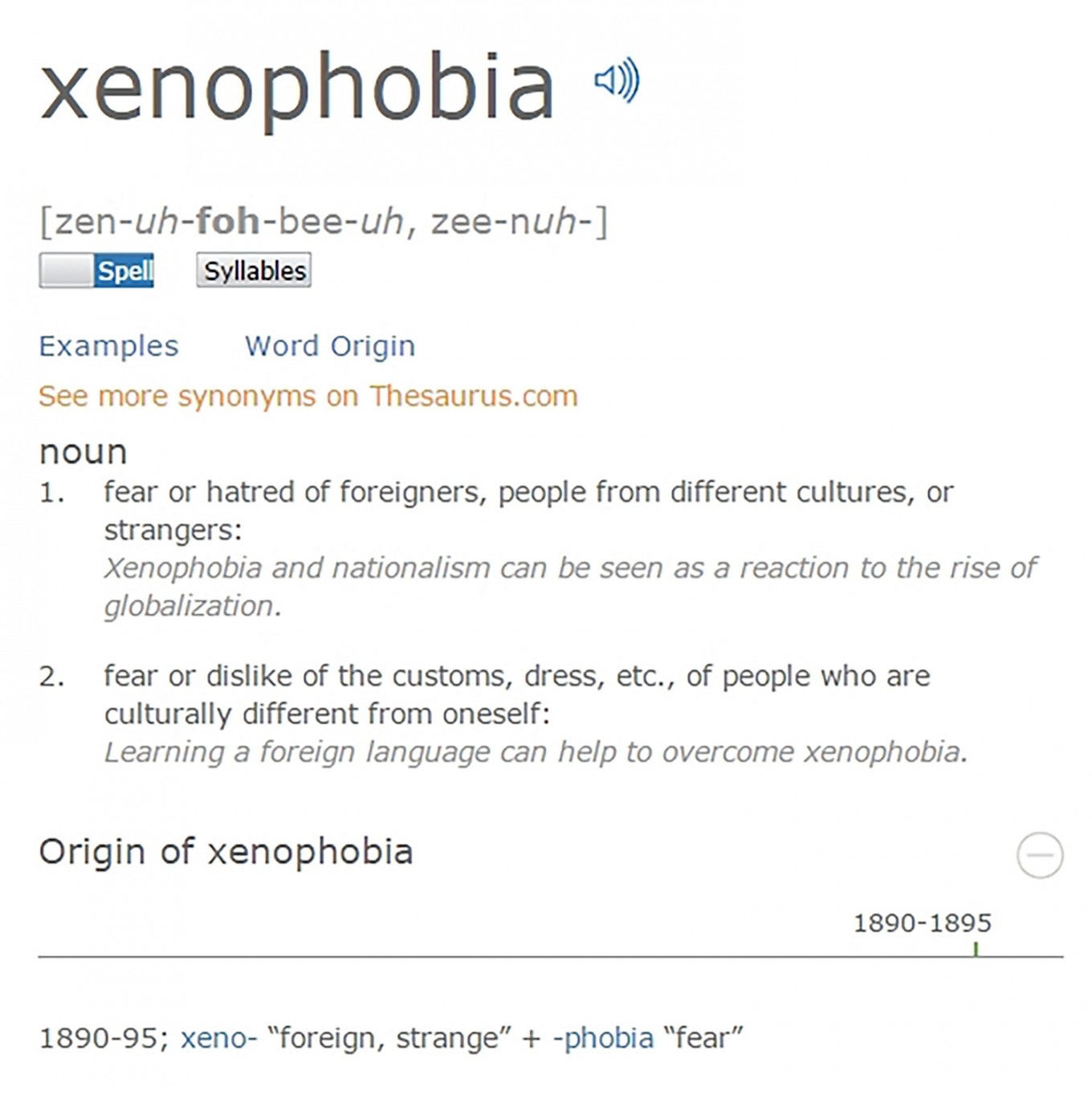Popular Reads
Top Results
Can't find what you're looking for?
View all search resultsPopular Reads
Top Results
Can't find what you're looking for?
View all search resultsDictionary.com's word of the year is 'xenophobia'
Change text size
Gift Premium Articles
to Anyone
Y
ou might have thought about it, heard it. A lot. You might have even felt it: Dictionary.com's word of the year is "xenophobia."
While it's difficult to get at exactly why people look up words in dictionaries, online or on paper, it's clear that in contentious 2016, fear of "otherness" bruised the collective consciousness around the globe.
The Brexit vote, police violence against people of color, Syria's refugee crisis, transsexual rights and the U.S. presidential race were among prominent developments that drove debate — and spikes in lookups of the word, said Jane Solomon, one of the dictionary site's lexicographers.
The 21-year-old site defines xenophobia as "fear or hatred of foreigners, people from different cultures, or strangers." And it plans to expand its entry to include fear or dislike of "customs, dress and cultures of people with backgrounds different from our own," Solomon said in a recent interview.
The word didn't enter the English language until the late 1800s, she said. Its roots are in two Greek words — "xenos," meaning "stranger or guest," and "phobos," meaning "fear or panic," Solomon added.
The interest was clear June 24, within a period that represents the largest spike in lookups of xenophobia so far this year. That was the day of Brexit, when the UK voted to leave the European Union.
Searches for xenophobia on the site increased by 938 percent from June 22 to June 24, Solomon said. Lookups spiked again that month after President Obama's June 29 speech in which he insisted that Donald Trump's campaign rhetoric was not a measure of "populism," but rather "nativism, or xenophobia, or worse."
(Read also: 'Post-truth' chosen as Oxford Dictionaries word of year)
 This screen image released by Dictionary.com shows the definition of xenophobia, named as word of the year. (Dictionary.com via AP/File)
This screen image released by Dictionary.com shows the definition of xenophobia, named as word of the year. (Dictionary.com via AP/File)
Solomon added that chatter about xenophobia goes well beyond the spikes.
"It has been significant throughout the year," she said. "But after the EU referendum, hundreds and hundreds of users were looking up the term every hour."
Robert Reich, who served in the administrations of Presidents Gerald Ford and Jimmy Carter and was President Clinton's labor secretary, felt so strongly about xenophobia's prominence today that he appears in a video for Dictionary.com discussing its ramifications.
"I don't think most people even know what xenophobia is," Reich, who teaches public policy at the University of California, Berkeley, said in an interview. "It's a word not to be celebrated but to be deeply concerned about."
Solomon's site, based in Oakland, California, started choosing a word of the year in 2010, based on search data and agreement of in-house experts that include a broad swath of the company, from lexicographers to the marketing and product teams to the CEO, Liz McMillan.
The word and the sentiment reflect a broader mournful tone to 2016, with Oxford dictionary editors choosing "post-truth" as their word of the year, often described in terms of politics as belonging to a time in which truth has become irrelevant.
"I wish," Solomon said, "we could have chosen a word like unicorns."











